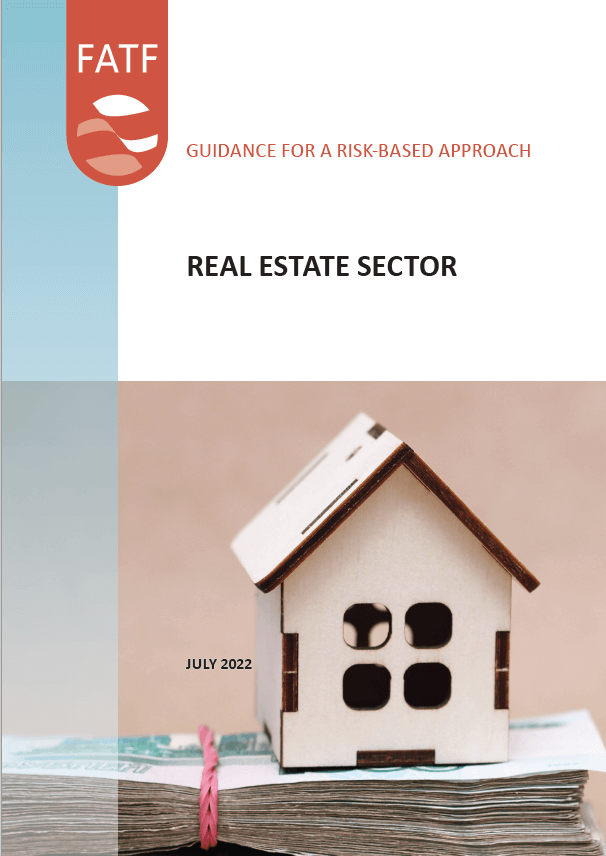On 26 July 2022, the Financial Action Task Force (FATF) released updated guidance on how to implement a risk-based approach for the real estate sector. The report includes extensive input from private contributors gathered in the course of a public consultation that took place in March-April 2022.
The Guidance puts a spotlight on what makes the risk of money laundering and terrorism financing particularly high for real estate practitioners and explains how criminal networks can exploit vulnerabilities to launder the profits of their illegal activities. It also highlights the importance for the sector to increase its understanding of the risks it faces.
After introducing some key concepts, the 76-page document is divided into three sections:
- An overview of the key principles guiding the FATF’s Risk-Based Approach to AML/CFT;
- Highly actionable guidance for the private sector to improve its AML/CFT understanding and controls;
- Additional guidance for supervisors to ensure the implementation of the FATF requirements is successful on a local level.
Click here to view and download a copy of the Guidance.
While all sections include highly valuable insights, the most relevant instructions for compliance experts in the Real Estate sector are to be found in the chapter dedicated to private sector players.
In particular, according to the FATF, all real estate firms should:
How Know Your Customer can help
By partnering with a trustworthy RegTech provider, real estate firms can easily and effectively bridge the gaps in their anti-money laundering controls.
Since 2015, Know Your Customer has been providing client due diligence and AML solutions to real estate firms and financial institutions across 18 jurisdictions worldwide. Our coverage of real-time connections to company registries is the widest in the market, making us the No. 1 provider for compliance teams globally.
Our Modular Compliance technology enables real estate firms of all sizes to:
- Centralise and streamline all CDD operations within a one-stop solution for maximum efficiency
- Bring the risk-based approach to life with our fully configurable risk engine
- Assign the relevant risk profile and workflow journey to each counterpart automatically
- Identify UBOs globally through official company data retrieved from registries in real-time
- Screen against AML watchlists for PEPs, sanctions, adverse media and perform on-going monitoring
- Automate internal and external reporting with business intelligence and immutable audit trail functionalities
Are you ready to embrace the Risk-Based Approach in line with the FATF Guidance?
Last updated on April 23rd, 2023 at 07:26 pm



